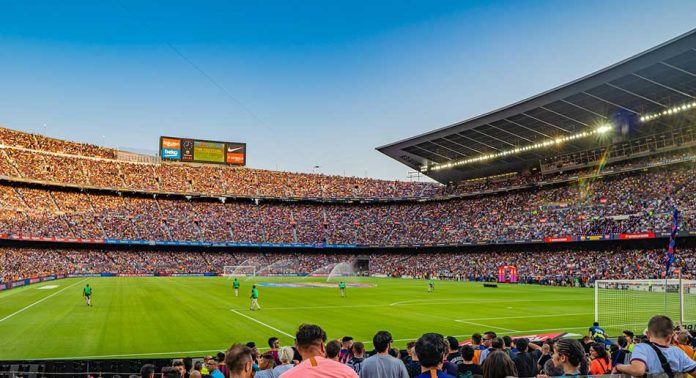In the summer Barcelona embarked on a summer transfer spending spree which left the rest of the continent aghast. They forked out over €100m on new signings, as well as bringing in a number of free agents on huge wages, despite their reported dangerous financial excesses. However, even with a number of big hitters such as Robert Lewandowski joining the club, the Blaugrana could still only manage third place in their UEFA Champions League group, thus dropping to the Europa League for the second consecutive season.
That relegation to Europe’s secondary competition is sure to hurt the club’s coffers even further. The Champions League offers much more prize money to its competitors when compared to the Europa League. For example, reaching the last 16 of UEFA’s elite tier competition results in clubs earning €9.6m, compared to just €1.2m in the Europa League. As such, it’s imperative that the Catalonians return to European football’s most elite dinner table as soon as possible.
But how did they spend so much money in the first place? Aren’t they over €1bn in debt?
The sale of the club’s assets
First and foremost, Barcelona managed to raise some funds through the sale of some of their fringe players. Pierre-Emerick Aubameyang was sold to Chelsea for €12m just six months after arriving from Arsenal on a free transfer. Philippe Coutinho was also sold to Aston Villa for €20m, which resulted in a whopping €115m loss, and that doesn’t include the player’s wages or loyalty bonus.
But the real funds were raised elsewhere, through the sale of a number of the club’s non-playing assets.
Back in June, Barcelona sold 10% of their Spanish top-flight TV rights to the American company Sixth Street, which resulted in the club receiving around €200m. A month later, they then sold a further 15% of their TV rights to the same company, who were more than happy to send an additional €400m Barcelona’s way.
They then sold a 25% stake in Barca Studios to cryptocurrency company Socios.com in exchange for €100m, as well as selling a 25% stake in their production company to Orpheus Media to secure an additional €100m in funds.
As such, the club’s balance sheet is in a much better position than it was, however, their income will be reduced considerably in years to come. That is particularly concerning considering the fact that they are currently upgrading their Nou Camp stadium at the cost of an estimated $1.5bn.
It’s not all bad though. The club sits at the summit of La Liga, two points clear of reigning champions and archrivals Real Madrid. If they can wrap up a first league title in four years at the end of the season, that may justify the decisions made through the summer by the powers that be in Catalonia.




































